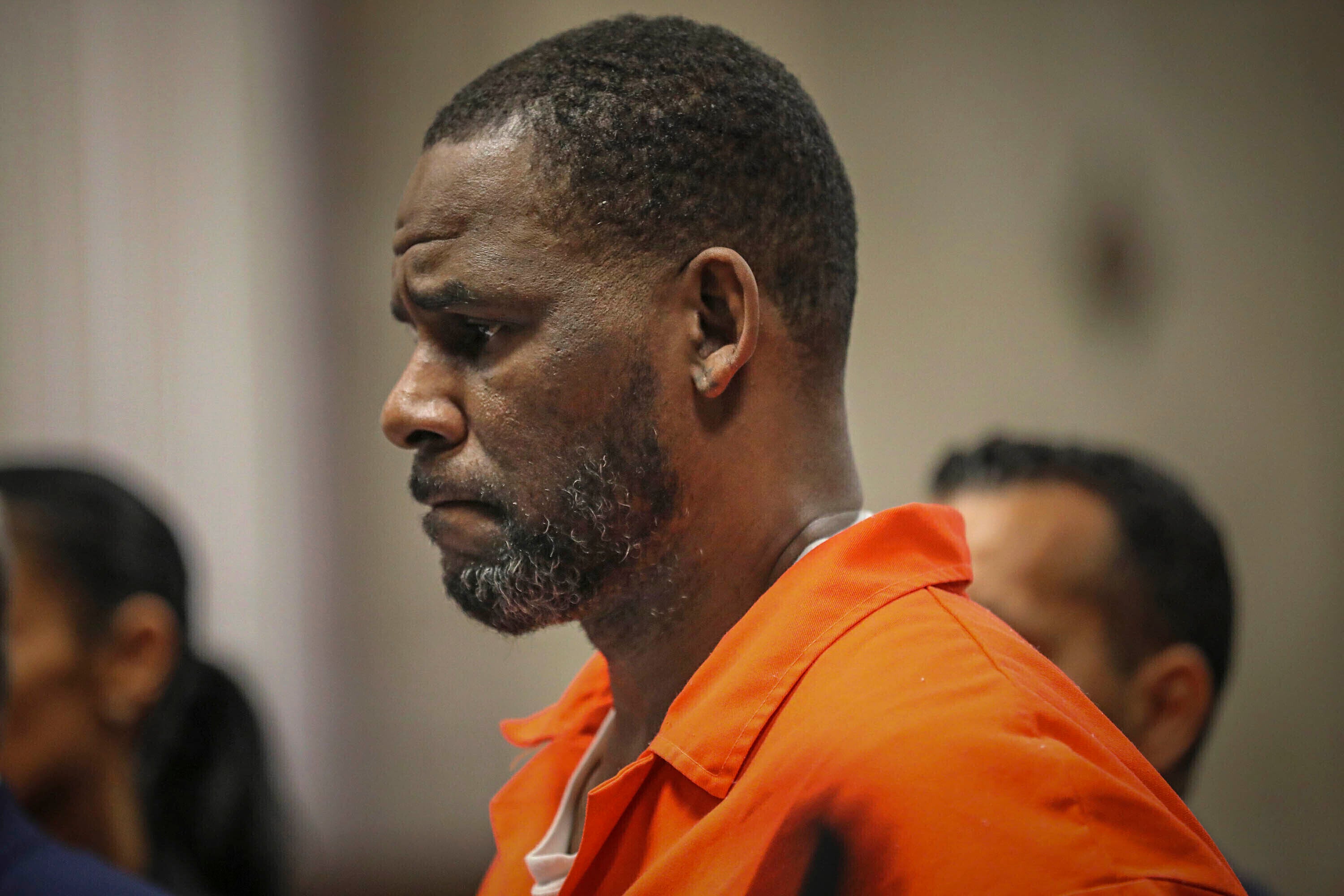Jury selection set to begin in R. Kelly sex trafficking case
After several delays, the first phase of the sex trafficking trial of R&B star R. Kelly is set begin with jury selection in New York City

Your support helps us to tell the story
From reproductive rights to climate change to Big Tech, The Independent is on the ground when the story is developing. Whether it's investigating the financials of Elon Musk's pro-Trump PAC or producing our latest documentary, 'The A Word', which shines a light on the American women fighting for reproductive rights, we know how important it is to parse out the facts from the messaging.
At such a critical moment in US history, we need reporters on the ground. Your donation allows us to keep sending journalists to speak to both sides of the story.
The Independent is trusted by Americans across the entire political spectrum. And unlike many other quality news outlets, we choose not to lock Americans out of our reporting and analysis with paywalls. We believe quality journalism should be available to everyone, paid for by those who can afford it.
Your support makes all the difference.After several delays, the first phase of the sex trafficking trial of R&B hitmaker R. Kelly will begin with jury selection Monday in New York City.
A judge in federal court in Brooklyn will question potential jurors about whether they can keep an open mind about Kelly two years after he was charged with abusing women and girls for nearly two decades. The proceeding will occur amid coronavirus pandemic precautions restricting the press and the public to overflow courtrooms with video feeds.
Kelly, 54, has been locked up since he was indicted, mostly housed in a federal jail in Chicago He was moved last month to the federal Metropolitan Detention Center in Brooklyn to face trial in a case that's further diminished his superstar status.
Last week, defense attorney Devereaux Cannick told a judge that Kelly needs to be measured for new clothing because he’s gained so much weight in jail. And he asked that court transcripts be provided at no cost because Kelly has been unable to work for two years, saying: “His funds are depleted.”
The Grammy-winning, multiplatinum-selling singer has denied any wrongdoing and pleaded not guilty to charges accusing him of leading an enterprise of managers, bodyguards and other employees who helped him recruit women and girls for sex. Federal prosecutors say the group selected victims at concerts and other venues and arranged for them to travel to see Kelly.
Defense lawyers have said Kelly’s alleged victims were groupies who turned up at his shows and made it known they “were dying to be with him.” They only started accusing him of abuse years later when public sentiment shifted in the #MeToo era, they said.
The trial had been expected to start earlier in the year. But opening statements were moved to Aug. 18 after Kelly fired his original defense team.
Jurors are expected to hear testimony from several of his accusers. A judge has ruled that the women will only be referred to by their first names.
Prosecutors have said the jury will also hear evidence that Kelly schemed with others to pay for a fake ID for Aaliyah, a singer on the rise at 15 years old, in a secret ceremony in 1994.
Aaliyah is identified as “Jane Doe #1” in court papers because she was still a minor when Kelly began a sexual relationship with her and believed she had become pregnant, the papers say.
“As a result, in an effort to shield himself from criminal charges related to his illegal sexual relationship with Jane Doe #1, Kelly arranged to secretly marry her to prevent her from being compelled to testify against him in the future,” the papers say.
Aaliyah, whose full name was Aaliyah Dana Haughton, worked with Kelly, who wrote and produced her 1994 debut album, “Age Ain’t Nothing But A Number.” She died in a plane crash in 2001 at age 22.
The case is only part of the legal peril facing the singer, born Robert Sylvester Kelly. He also has pleaded not guilty to sex-related charges in Illinois and Minnesota.
Kelly won multiple Grammys for “I Believe I Can Fly,” a 1996 song that became an inspirational anthem played at school graduations, weddings, advertisements and elsewhere.
Nearly a decade later, he began releasing what eventually became 22 musical chapters of “Trapped in the Closet,” a drama that spins a tale of sexual deceit and became a cult classic.
But Kelly has been trailed for decades by complaints and allegations about his sexual behavior, including a 2002 child pornography case in Chicago. He was acquitted in that case in 2008.
Scrutiny intensified again amid the #MeToo movement in recent years, with multiple women going public with accusations against the singer. The pressure intensified with the release of the Lifetime documentary “Surviving R. Kelly” in 2019.
Criminal charges soon followed.